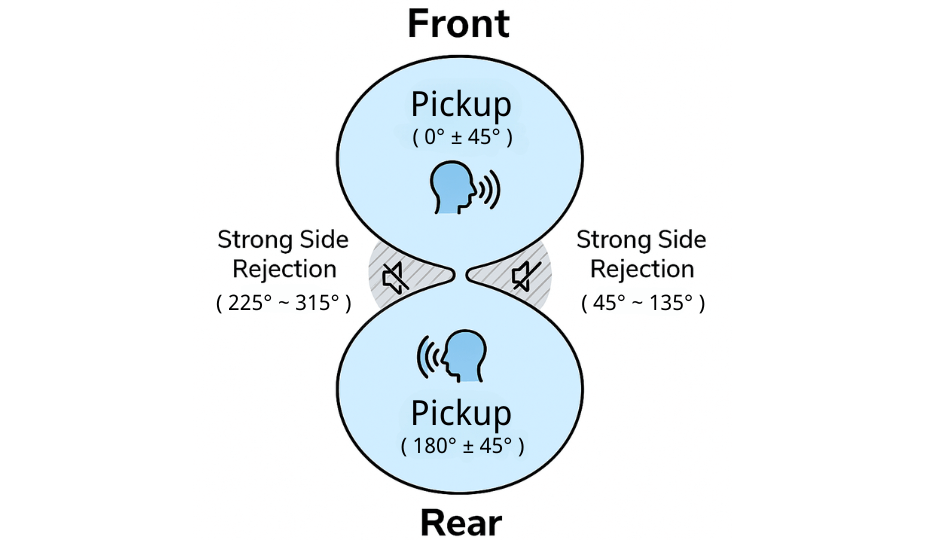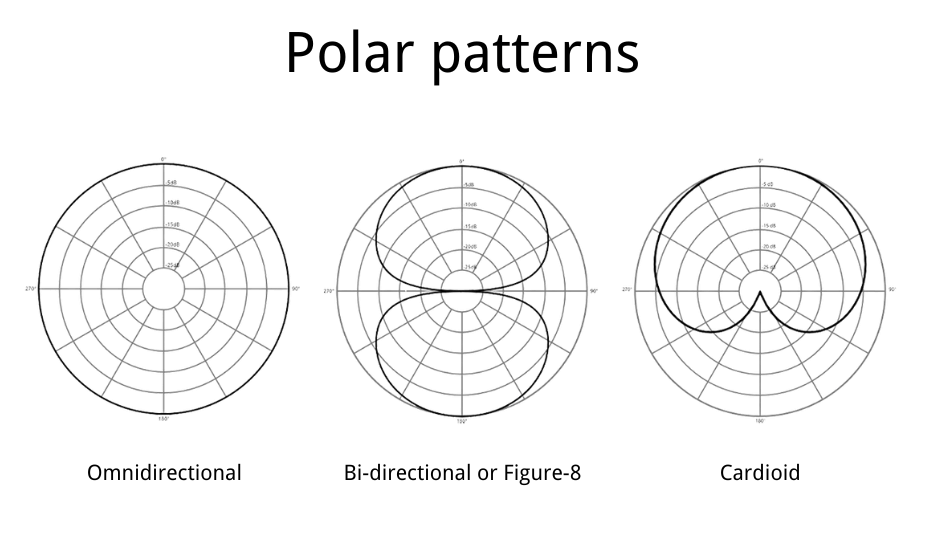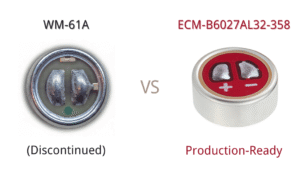
Introduction: The Challenge of Clear Communication
Environments like aircraft cockpits and bustling call centers present a serious challenge for voice clarity. Background noise, constant chatter, and machinery sounds can all interfere with effective communication. That’s why the choice of microphone polar pattern is critical — and in many of these scenarios, the figure-eight microphone (also known as a bidirectional microphone) is the preferred solution.
What Is a Figure-Eight Microphone?

A figure-eight microphone captures sound equally from the front and rear, while rejecting sounds coming from the sides. Visually, its polar pattern resembles the number “8”, hence the name. This directional behavior is achieved through a diaphragm that is symmetrically exposed to sound pressure from both sides.
In technical terms, the diaphragm is suspended within a housing that allows it to respond to pressure differentials — not absolute sound pressure like in omnidirectional microphones. This differential sensitivity means that side noises, which exert equal pressure on both sides of the diaphragm, are largely canceled out.
Why It’s Perfect for Aviation Headsets
In aviation, headsets must suppress cabin noise while capturing the pilot’s voice with precision. A figure-eight microphone, positioned between the pilot’s mouth and open cockpit noise, can effectively cancel out much of the ambient sound. Its ability to reject side noise makes it ideal in this scenario.
Additionally, figure-eight microphones do not rely on electronic noise cancellation alone — their directional characteristics are achieved passively, through acoustic design. This makes them more reliable in high-interference environments and reduces the need for complex signal processing.
Advantages in Call Center Headsets
In a call center, microphone clarity translates directly to customer satisfaction and operational efficiency. Employees often sit in close proximity to one another, which means off-axis noise from nearby conversations can be a serious problem. A figure-eight microphone reduces this by rejecting sound from the sides, ensuring that only the speaker’s voice is transmitted.
This polar pattern also helps reduce feedback issues in open office layouts, especially when paired with good headset positioning and acoustic foam shielding.
Comparison with Other Polar Patterns

- Omnidirectional: Captures sound from all directions. Great for ambient recording, but poor at noise rejection.
- Cardioid: Focuses on the front, with some side rejection. Common in vocal mics, but less effective than figure-eight in high-noise, dual-source environments.
- Figure-Eight: Picks up front and rear, rejects sides — ideal for voice-focused applications in noisy environments.
Conclusion
The figure-eight microphone pattern offers a powerful solution for noisy environments that require high speech intelligibility. Whether it’s for pilots in the sky or agents in a call center, this bidirectional design enhances clarity by leveraging its inherent noise-rejecting characteristics. As such, it remains a key technology in the development of professional communication headsets.
Explore our customized bidirectional microphone components: Discover our aviation-grade and call center-ready figure‑eight (bidirectional) capsules with superior noise rejection and clear voice capture. View product details →
Need tailored solutions? With over 20 years of experience in electret microphone OEM/ODM production, we’re ready to support your projects. Contact us today →


